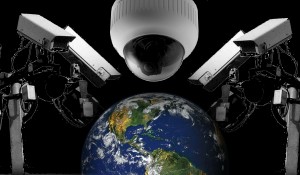
Even though Miranda was clearly not a terrorist, UK authorities cited anti-terrorism laws as their rationale, detaining him and subjecting him to interrogation for nine hours, refusing him any contact with a lawyer or anyone else before he was released without any charges being laid.
Arresting Miranda conveniently meant that any computers, smartphones and tablets he had on his person or in his luggage were confiscated, with the assumption being that as the partner of Glenn Greenwald, Miranda could be holding documents or other data from Snowden.
Clearly, selected members of the US/UK media and their families/partners are under surveillance, and Miranda was obviously earmarked as a suspect to be apprehended if and when he ever set foot in the UK.
His arrest marks a growing tension as governments try to regulate online information. This was also illustrated by two encrypted email service providers closing down last week, citing ethical concerns with having to turn information over to intelligence agencies.
Equally, if not more concerning, Google also stated that Gmail users “have no legitimate expectation of privacy” last week.
The UK government is also said to have forced The Guardian newspaper to destroy any computers that may have contained documents from Snowden. Even though the stable door is swinging in the breeze and the horse has well and truly galloped, this penchant for interfering with media is a very worrying trend.
The free and often wild world of the internet is being reigned in as the Edward Snowdens and Wikileaks continue to constitute a growing headache for governments. Sadly, this also translates into a steady erosion of digital freedoms for you and me and could soon (as demonstrated with Miranda in the UK) spill over into the real world with some very real consequences.
While no one disputes that governments need to be able to catch terrorists, the evolution of what seems to be a virtually unaccountable surveillance state set up in the name of apprehending terrorists sets the stage for an untold amount of abuse, especially when intelligence agencies get things wrong.
Since the Prism scandal, there has been a steady stream of increasingly alarming revelations about mistakes made by intelligence agencies that have ranged from incorrectly identifying Americans as foreigners (resulting in them being put under surveillance), through to phone number typos that saw the NSA monitoring calls made in Washington instead of Egypt (which once again also saw US citizens being spied on).
So, was hauling David Miranda off a flight, and interrogating him for 9 straight hours yet another mistake? Odds are that the UK secret service didn’t see Miranda as a terrorist, but simply wanted to send a message out along the lines of “we’re watching you”, and to intercept any intelligence they could on Snowden.
Most alarming with the activities from intelligence services is what appears to be a near complete lack of oversight. Even though politicians try to assure us otherwise, it appears that based on recent activities, no one is policing who gets to say who is or who isn’t a terrorist. Put bluntly, a “terrorist” is anyone that the intelligence agencies say is a terrorist, which scarily has echoes of pre-World War 2 Germany or Stalinist Russia. Taken to its logical extreme will a knock at the door in the dead of night after going online be the norm?
On one level this may seem somewhat more than a little abstract in New Zealand, but as John Key tries to make the GCSB bill more palatable, Miranda’s arrest and subsequent nine hour interrogation things seem to be getting very real and very scary indeed.
Sadly it appears that as the battle between those seeking to preserve online civil liberties and increasingly nervous governments continues, more ordinary people are likely to be caught in the crossfire as intelligence agencies gain unprecedented powers that have yet to clearly defined by politicians. So should we be worried? PAT PILCHER















